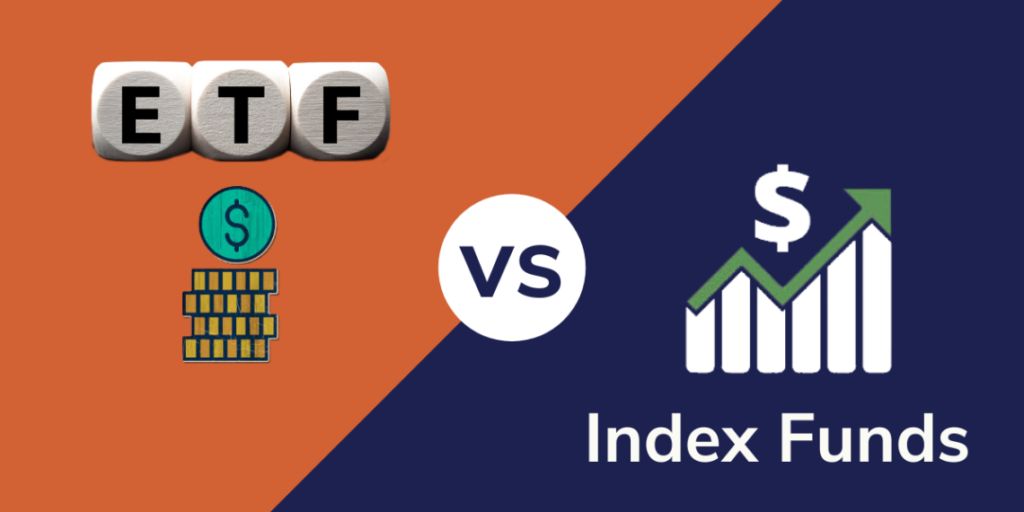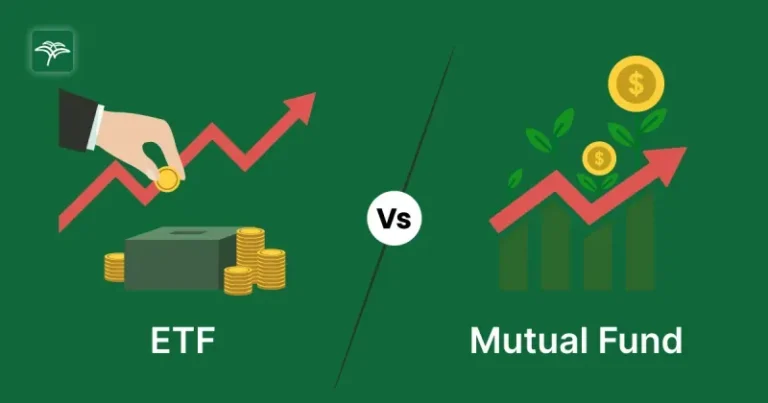ETFs vs Mutual Funds for Long-Term Investing. Both investment vehicles have advantages and disadvantages. Differentiating between these options is essential for investors trying to establish a diversified portfolio over time. ETFs and mutual funds allow access to diverse assets such as stocks, bonds, and commodities. This article will break down each option’s key features, advantages, and disadvantages, allowing you to decide which type of investment aligns with your long-term financial goals.
A Closer Look at ETFs and Mutual Funds

Before the comparison, it is essential to understand what ETFs and mutual funds are. They are the same as stock ETFs — ETFs are traded like stocks on exchanges. They usually follow an index or a specific sector and can be traded all day. In contrast, mutual funds are investment vehicles that pool the money of multiple investors and are managed by professionals, who build a diversified portfolio of assets from the money gathered. Unlike ETFs, mutual funds are purchased and sold at the end of the trading day at their net asset value (NAV). These definitions will help highlight the differences between the two.
Cost Structure: Fees and costs
The cost structure is a key difference in the ETFs vs. mutual funds for long-term investing debate. In general, exchange-traded funds (ETFs) have the lowest expense ratios, on average, of mutual funds. That is because they follow an index rather than rely on active management. In contrast, actively managed mutual funds usually charge higher fees to pay fund managers for their skills. Moreover, investors need to factor in any trade commissions tied to purchasing ETFs, although many brokerages currently offer commission-free trading for ETFs. Awareness of such costs is critical for evaluating overall investment performance.
Tax Efficiency
Another important aspect in comparing ETFs and mutual funds is tax efficiency. Thanks to their structure, most ETFs are a lot more tax-efficient. When investors buy or sell ETF shares, the transactions occur on the exchange and do not trigger capital gains taxes. This enables ETF investors to defer tax obligations until they sell their shares. By contrast, mutual funds can produce capital gains distributions during the year, with potential current tax implications for investors even without the sale of any shares. As a result, if you are a tax-sensitive investor looking for a long-term growth vehicle, ETFs may be a superior option.
Flexibility and Investment Strategies
Whether looking at ETFs or mutual funds, both present a range of investment approaches. However, unlike mutual funds, ETFs can be bought and sold throughout the day, allowing investors to capitalize on price fluctuations in real-time. This can help active traders and those wanting to do particular strategies, like dollar-cost averaging. On the other hand, mutual funds are to be utilized by those who want to hold onto their investments long term. However, mutual funds allow you to automate contributions, making it easier to take consistent investments over time without continuing to manage your portfolio actively.
Diversification and Asset Allocation
ETFs and mutual funds allow investors access to diversification, a key element in long-term investing. Many investors usually pool mutual funds and invest in various securities, thus lowering the risks. Likewise, ETFS provide diversification by tracking indices of different stocks or bonds. However, the diversification could vary by fund. Lastly, investors need to do their homework regarding the holdings within each fund to ensure they align with their risk tolerance and investment goals. That said, both are ultimately parts of a well-diversified portfolio.
Monitoring Performance and Transparency

Transparency is another key consideration when evaluating ETFs vs mutual funds for long-term investments. ETFs must report their holdings daily, meaning investors can see what they own at any time. So much transparency will allow investors to make better decisions about the current and future market conditions. On the other hand, mutual funds are required to report their holdings four times a year, which could leave investors with stale data. Both offer tracking of performance, but the greater transparency afforded by the daily reporting of ETFs can be a significant advantage for allocation-conscious investors.
Risk Considerations
All investing comes with risk, and knowing the risks of exchange-traded and mutual funds is essential. Both types of investments are also subject to market volatility and changes in value. However, the precise risks may differ depending on the underlying assets owned by each fund. For example, sector-specific exchange-traded funds can be more volatile than widely diversified mutual funds. The additional risks of actively managed mutual funds stem from the fund manager’s decisions. The number of shares to purchase depends on your financial strategy, as investors should evaluate their risk tolerance and long-term investment objectives.
Minimum Investment and Accessibility
When analyzing ETFs vs mutual funds for long-term investing, accessibility and minimum investment requirements are also key components. Most ETFs can be bought with no minimum investment, lowering the barrier to entry for more investors. This feature helps people start investing with a small amount of money. On the contrary, many mutual funds require a minimum investment, usually between a few hundred and a few thousand dollars. The difference in the accessibility of both can sway an investor’s choice, especially for beginners who wish to start out with a small amount of capital.
Return of Capital and Income Generation
ETFs and mutual funds can offer income via dividends, but they may treat this differently. Most ETFs pay dividends on a quarterly basis, providing investors the periodic income. Others reinvest these dividends to buy extra shares, enabling them to build up their investment over the long term. While a mutual fund also pays dividends, its frequency depends on the fund’s policy. Investors should consider their income needs when deciding between these two options and look for funds that will support generating income for them.
Decoding the Best Choice for You
Your investment goals, risk tolerance, and personal preferences determine whether ETFs or mutual funds are the right choice for you. If you favor lower costs, tax efficiency and flexibility to trade in real time, ETFs may be a better fit. But if you prefer professional management and a more passive investing style, mutual funds could be more your speed. Before deciding what to do, think carefully about your financial goals and investing strategy. You could also have a combination of both ETFs and mutual funds in your portfolio, as both vehicles have their own advantages for portfolio diversification and balance.
Conclusion
To summarize, both ETFs and mutual funds have their own pros and cons when it comes to long-term investment. Then explain the differences between these investment vehicles and why knowing the nuances is essential to informed choices. Both options are important parts of your investment strategy, depending on whether you want lower costs, tax efficiency, the convenience of professional management, or all of the above. Focusing on your goals and preferences allows you to select the investment vehicle that will best support your long-term success. Invest in your future now, your peace of mind is worth it.

